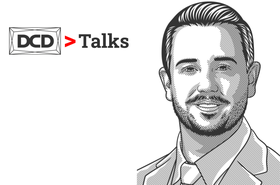When it comes to preventing disaster, communication goes a long way, so why are those operating in mission critical environments still working in silos?
In a DCD>Talk, Evoque's SVP of design, engineering, and construction, John Mailler, highlighted the domino effect that siloed decision-making can have in a data center environment.
“There’s the design stage, build stage, and the operating stage, and they've always existed in silos. The teams don’t work in conjunction with each other. So decisions get made in the design phase that affect construction, and then those decisions ultimately affect operations,” he explained.
“The designers and builders are looking at it and saying ‘Hey this is a two-year project, and then I’m gone, right? But the reality is, in a data center you never stop because technology is changing, clients are changing, so decisions you make now need to be based on the lifespan of a 30-year building. It's a 32-year construction project.”
Mailler goes on to explore the concept of ‘operational empathy,’ which is essentially where each team ensures decisions are mindful of how those decisions might affect another team, either in the present, or later down the line.
“It’s where the design teams, the build teams, the operations teams have in the forefront of their minds when they’re making the 500 decisions that they have to make a day, ‘How is this going to affect my design?’ Or, ‘How is this going to affect my operations person?’ ‘How is this going to affect the technician who's got to come in and service the generator later down the road?’ And we’re going to communicate that.”
Mailler explains that it’s not about creating a situation where, all of a sudden, all decisions are based on the needs of operations, for example. Rather, it’s one that opens up the vital lines of communication necessary for ongoing operational success.
So, how do you actually achieve operational empathy? We’ve all heard some variation of the phrase “Before you criticize a man, walk a mile in his shoes,” and it is this onus on understanding one another that Evoque attributes to its success.
“At Evoque, it's almost like a day in the life program. You’re gonna come in as a builder, or part of your onboarding involves spending two weeks as an operator, or you've got to go spend a week with your sales team, and you've got to learn what it is to make a sale, what does it mean to sit with a client, to sit with our engineers and figure out what is it that they have to deal with on a day to day basis.”
This knowledge provides previously siloed teams with valuable insight into how their day-to-day decisions impact people both upstream and downstream, helping save costs across the wider business in the long run.
“For instance, if a decision is made in a silo, one team’s $2 million saving might cost us $20 million over the life of the building,” said Mailler.
But operational empathy isn’t just about intercepting potentially costly decisions; it’s about fostering a productive, positive work environment and goes a long way towards making employees feel valued and respected.
“We create an environment where everybody prefers to work with you, because they know you're thinking about them, they know you care about them. Then, regardless of how much money is getting spent, or what the demands are, it's just the natural tendency of people who know other people care about what's going on in their world, to want to work together.
“It also makes you the place that people want to work at, it’s not just about deadlines and money.”
So, when it comes to achieving smooth operations for the lifetime of the data center, it really is the thought that counts. To hear more about operational empathy, watch the full DCD>talk here.

